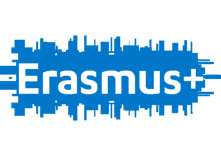Cultural heritage is important because it helps people connect with others who have similar backgrounds and provides a sense of unity and belonging. It provides people with a link to traditions that might otherwise be lost.
The sensitivity, responsibility and awareness of members of a society towards this values are so significant for handing them down to future generations. Traditional and cultural values are ignored by today’s generation and the young face cultural degeneration. The aim of the project is to help young people be more aware of the cultural prosperity and their own identity and characteristics, transferring them to the following generations, since those who have no awareness or value of their own heritage can hardly have bright future. Thanks to this project, they will grow up as whole individuals besides their academic capabilities.
The project will be focused on cultural values like historical buildings; such as traditional historical houses, markets or other traditional buildings. It will look at the lifestyles and traditional ceremonies held in these buildings. In conclusion, national, cultural and cross-cultural awareness will be aroused among the young and they will have the opportunity of having a better understanding of each other’s culture and will find out who they have been and thus they will discover the traces of EU identity. Our project aims also to compare and contrast the influence of religious and historical buildings on local culture. In doing so we will link subjects such as citizenship, history, religion, geography, literature, art and foreign languages.
In addition, the project will:
- Strengthen skills and attitudes that will help teachers and youth workers to grow in a professional field and as personalities;
- Develop young peoples’ emotional intelligence and effective communicative, collaborative and creative skills;
- Discover different cultural identities and to what extent these different identities live together in Europe or in their own countries; • Introduce a sense of European dimension of education, introducing the idea of an international collaborative work and the amelioration of a European dimension on linguistic and cultural contents in the curriculum;
- Increase the motivation of direct and indirect beneficiaries of lifelong learning to develop ICT skills as a way to communicate and to use them as a purposeful everyday tool, to learn a new language and as a means of communication and mastering English for project work;
- Encourage the cooperation within 6 organisations in Europe and the exchange of good practices;
- Increase young people’s, parents’, teachers’ and youth workers awareness of the role which can be played by their country in a European context by active involvement and participation of students and parents through all the stages of the project;
- Share common European values;
It is important this project be carried out at the transnational level, as we think it will be very interesting to define similarities and differences throughout European countries in our way of livings, stories, food, “CULTURE”. Working together in international teams will create an atmosphere of trust, help to avoid prejudices and strengthen bonds between families and organisations from six European countries. The mobility allow students to apply the basic and transversal skills while simultaneously empowering them as citizens: they have to be able to articulate their ideas in different multilingual contexts, they need to deal with unfamiliar audiences, purposes and environments, they need to adapt and develop strategies to deal with unexpected situations.

